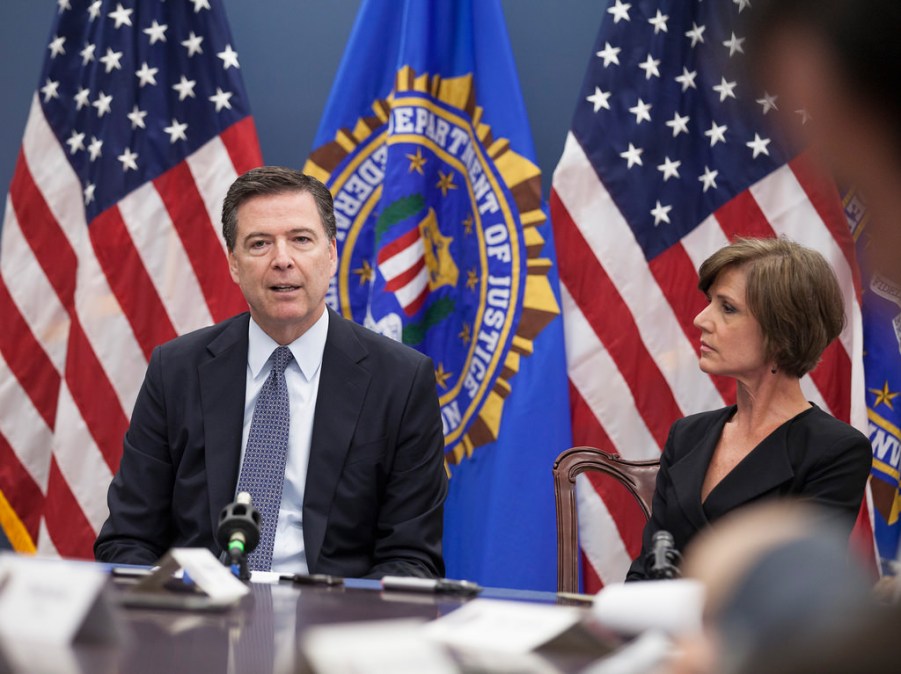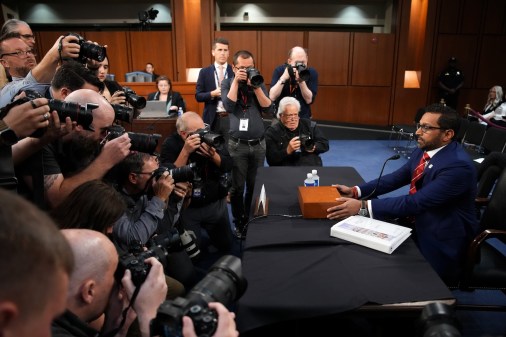FBI director: If left unchecked, Russian hackers will change vote tallies in a future U.S. election

FBI Director James Comey predicts that if left undeterred, Russian hackers will one day attempt to change the vote tally in a U.S. election.
Comey said as much during a public hearing Wednesday in the Senate Judiciary Committee. Members asked Comey a series of questions concerning Russia’s ability to conduct damaging cyber-operations against both the U.S. and its allies.
“In my view, [Russia is] the greatest threat of any nation on earth given their intention and capability,” Comey blankly stated.
Last year, in the months preceding the U.S. presidential election on Nov. 8, the Homeland Security Department discovered a series of digital attacks aimed specifically at voter registration databases used in different states.
These systems are disconnected from and do not affect machines that record or tally actual votes, and there is no evidence to suggest that Russian hackers were able to alter vote counts in the 2016 election. Some officials fear, however, that enemies of the U.S. will attempt to disrupt future elections in more a direct manner.
“Have they done this in other countries where they’ve actually tampered with the vote,” Sen. Lindsey Graham, R-S.C., asked Comey.
He calmly responded, “My understanding is they’ve attempted it in other countries.”
“And there’s no reason to believe they won’t do it here if we don’t stop them over time,” Graham followed up.
Comey again responded, “I think that’s fair.”
Not for the first time, the FBI director also warned Wednesday that Russia will likely attempt to influence both the upcoming 2018 congressional and 2020 presidential elections because of the apparent success they found in 2016.
Russia, Comey said, remains actively involved in American politics.
The director of national intelligence said in January that hackers working on behalf of Russian intelligence were behind a broad range of recent cyberattacks that targeted critical infrastructure networks in Europe and Eurasia to “influence public opinion.”
In 2014, just days before Ukraine’s 2014 parliamentary elections, a group of hackers with suspected ties to Russia launched a prolonged distributed denial of service-style attack against the country’s Central Election Commission website — which is used to display election results. In addition, the hacking group, dubbed CyberBerkut, made a separate attempt to fake Ukrainian election results in what’s believed to have been an effort to dissuade opponents of former, pro-Moscow President Viktor Yanukovych from casting votes.






